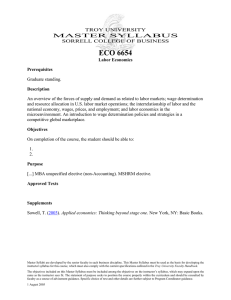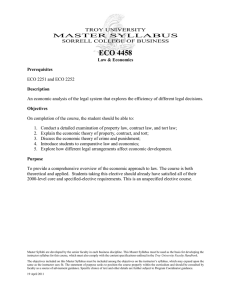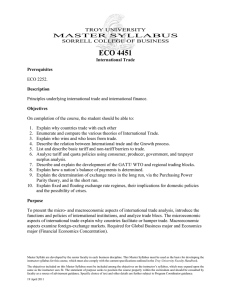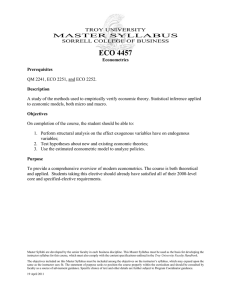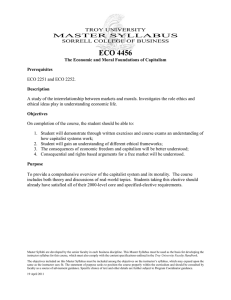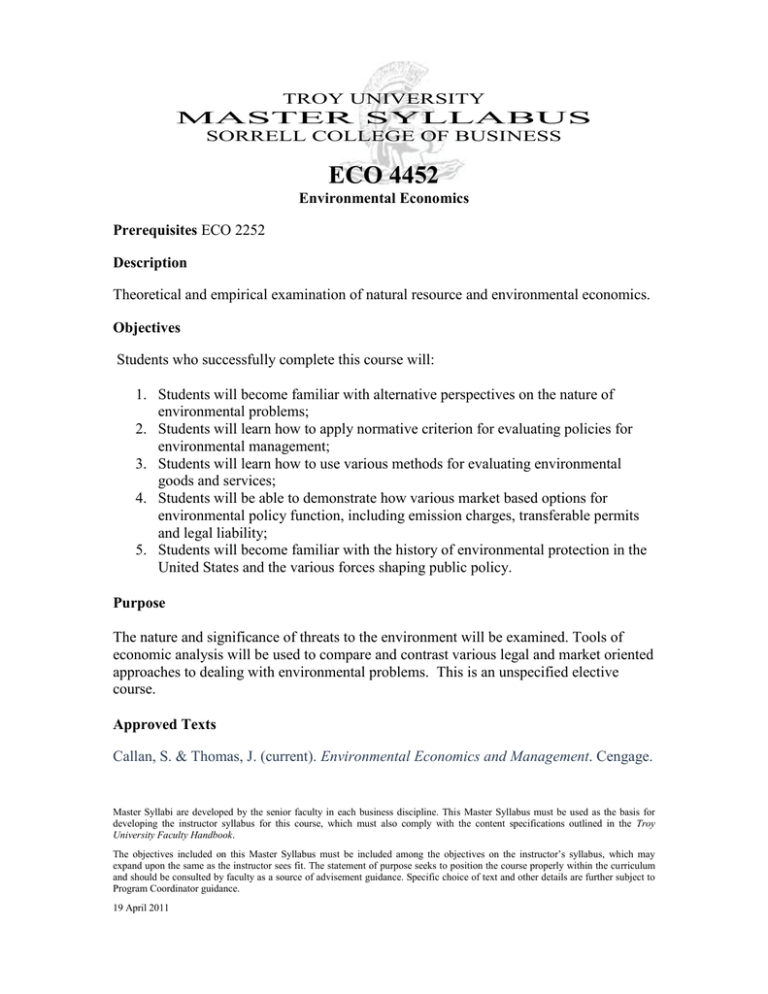
TROY UNIVERSITY
MASTER SYLLABUS
SORRELL COLLEGE OF BUSINESS
ECO 4452
Environmental Economics
Prerequisites ECO 2252
Description
Theoretical and empirical examination of natural resource and environmental economics.
Objectives
Students who successfully complete this course will:
1. Students will become familiar with alternative perspectives on the nature of
environmental problems;
2. Students will learn how to apply normative criterion for evaluating policies for
environmental management;
3. Students will learn how to use various methods for evaluating environmental
goods and services;
4. Students will be able to demonstrate how various market based options for
environmental policy function, including emission charges, transferable permits
and legal liability;
5. Students will become familiar with the history of environmental protection in the
United States and the various forces shaping public policy.
Purpose
The nature and significance of threats to the environment will be examined. Tools of
economic analysis will be used to compare and contrast various legal and market oriented
approaches to dealing with environmental problems. This is an unspecified elective
course.
Approved Texts
Callan, S. & Thomas, J. (current). Environmental Economics and Management. Cengage.
Master Syllabi are developed by the senior faculty in each business discipline. This Master Syllabus must be used as the basis for
developing the instructor syllabus for this course, which must also comply with the content specifications outlined in the Troy
University Faculty Handbook.
The objectives included on this Master Syllabus must be included among the objectives on the instructor’s syllabus, which may
expand upon the same as the instructor sees fit. The statement of purpose seeks to position the course properly within the curriculum
and should be consulted by faculty as a source of advisement guidance. Specific choice of text and other details are further subject to
Program Coordinator guidance.
19 April 2011
Master Syllabus: ECO 4452 (Revised August 2013)
Tietenberg, T. (current). Environmental Economics and Policy. Pearson/Addison Wesley.
Troy University Faculty Handbook (2010): Section 3.9.2.8 [extract] — essential elements of the syllabus (somewhat modified for
space):
1. Course title
2. Course number
+ section
3. Term
4. Instructor
5. Prerequisites
6. Office hours
7. Class days, times
8. Classroom
14. Grading
location
methods,
9. Office location +
criterion
e-mail address
weights, make10. Office telephone
up policy, mid11. Course
term grade
description,
reports
objectives
15. Procedure,
12. Text(s)
course
13. Other materials
requirements
16. General supports
(computer
works, writing
center)
17. Daily
assignments,
holidays,
add/drop & open
dates, dead day,
final exam
18. ADA statement 23. Cheating policy
19. Electronic
24. Specialization
device statement
requirements
20. Additional
(certification,
services,
licensure,
statements
teacher
21. Absence policy
competencies)
22. Incomplete-work
policy

